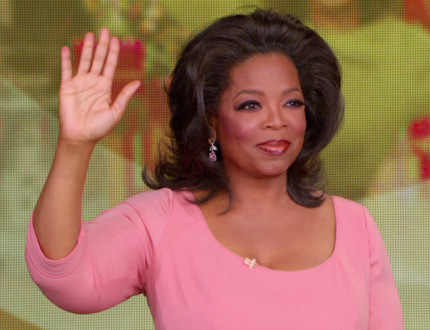A Gujarati friend living in London was chuffed. "I think he's done it, he'll make it," she wrote. Her family could be here, but they are not. And will never. The excuse is "The children were brought up in a western culture, they won't adjust."
So, how globalised is it really? Many like my friend are mere cheerleaders. I avoided writing about it, but that note made me think.
Narendra Modi turned out in good form as a salesman during the recently-concluded Vibrant Gujarat Summit.
When a man hawking his state is trumpeted as hero, he is pushed into a slot. The background noises about Modi as national leader and prime ministerial candidate come from soothsayers, not pragmatists.
Modi has scuttled his chances at being a national leader, forget the candidate for the top job by acting as drumbeater. As he said:
"Once upon a time, Gujarat was the gateway to the Globe from India. Now it is becoming the Global Gateway to India. Gujarat welcomes you through open arms with this event which has grown far beyond the boundaries of Gujarat."
The statement proves just how regional he is. A good indication of a thriving global economy would be if migrants from the state have returned despite doing well abroad and not because of a slack overseas economy that forces them to invest in their roots.
For foreign investment, Gujarat has always had a thriving middle class. Modi has only given it a visible face, a name. He has made the trader his brand - marketing asmita, self respect. Curiously, this version of swadeshi is essentially based on a western model.
Much has been said about big business tycoons and their syrupy odes to him. Let us see what they really mean.
***
“I am proud to say that RIL is a Gujarati, Indian and a global company. We began from Gujarat and we come back here again and again to invest." - Mukesh Ambani
Indeed, Dhirubhai Ambani started from here. Their major benefactors back in those days were in Delhi. The AGMs of Reliance are held in Mumbai. They've built schools, hospitals in Mumbai. Their showpiece houses are in Mumbai. Their wives' promote cultural activities in Mumbai. They are not investing in Gujarat, but investing in property for their pollution-causing factories there.
***
"Narendra Bhai has been described in different ways. My personal favourite comes from what his name literally means in Sanskrit - a conjunction of Nara and Indra. Nara means man and Indra means King or leader. Narendra bhai is the lord of men and a king among kings." - Anil Ambani
This was probably the most treacly account, but we are a nation that deifies. Narendrabhai himself dresses up in mythological garbs and it pleases the junta, just as any road show would. Anil Ambani, like his brother, will pick and choose the options in Gujarat. They know they are the real kings, as Forbes keeps telling them.
***
“Gujarat has made a remarkable progress. We see almost every state embarking on an investors' summit now - a pro-active approach established with a walk the talk approach of the government here." - Adi Godrej
This is essentially playing politics. Investors' summits have often been organised by business organisations. You don't need a political leader for that. Giving Modi credit for it is the sort of palm-greasing industrial houses do before they get their files pushed. Here, it is a preemptive strike.
***
“There is something about the food in Gujarat that makes Gujaratis not just entrepreneurial but they are remarkably free of the fear of failure. And to me, this freedom from the fear of failure is at the root of entrepreneurship and innovation. In future we will talk not just of China model in India, but Gujarat model in China.” - Anand Mahindra
This is the consolidation of the state as a separate entity. When big industrial houses attend summits in Mumbai, do they reduce such talk to Maharashtrian food or the Marathi characteristics? No. It is redundant to their own aspirations. What Mahindra is in fact conveying is that this spirit was there before Modi and shall be there always.
The China reference was cheeky. China has gone ahead with its economy, but internally continues with its heavy-handed policies. It would be more than happy to clone any model and later make cheap fakes that will probably sell like hot dhoklas in Gujarat itself.
***
The state is an option like any other. Those investing here are contributing to its image- building much like a wedding family ensures a sturdy and trussed up mare for the groom to ride on to take back his wife.
Ratan Tata spoke about how he first did not invest and then he did, and is now convinced about Gujarat. He forgot to add that he was shunted out of West Bengal where he started his Nano project.
I felt a bit sad when Narendra Modi said in his concluding speech:
"All these people who are greeting us, trying to speak our language, they just want to be part of our economic success."
Foreign diplomats made the right noises and it was to ensure that the huge diaspora in their countries continues to add to the economy from their spice-laden havens in Wembley and New Jersey. Not in Jamnagar and Ahmedabad.
But it does not hurt to look through a bubble and see sudsy rainbows.
© Farzana Versey



